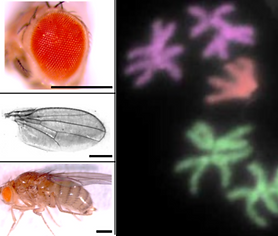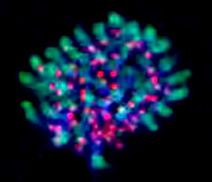top of page
The Fox Lab at Duke University
GENOMIC EXTREMES
IN ORGAN DEVELOPMENT, REGENERATION,
AND DISEASE
fundamental rules of polyploidy

Whole genome duplication, or polyploidy, is now appreciated to be widespread in both organisms and tissues. Despite the common occurrence of this transformative biological property, we know little about fundamental "rules" of polyploidy, such as gene expression patterns that are commonly induced by whole genome doubling. To address this knowledge gap, our group is part of the Polyploidy Integration and Innovation Institute. Our Institute combines experimental approaches in fungi, algae, plants, and animals with modeling approaches to sift through organism or tissue-specific biology to reveal common properties of polyploidy at the scales of single cell, tissue, organism, and ecosystem.
Generous Funding for this work provided by:

bottom of page


